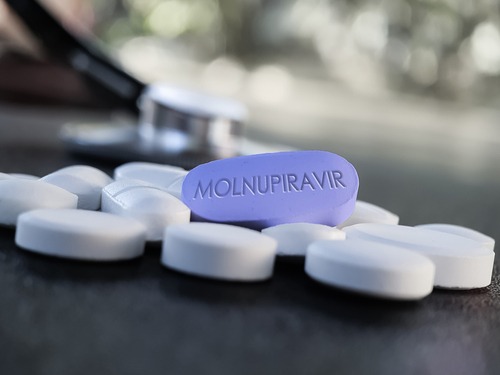
The preliminary results of a Phase 2a randomized, double-blind trial of the Merck and Ridgeback Biotherapeutics-created oral antiviral for the treatment of COVID-19, molnupiravir, have shown the ability to quickly decrease the infectious virus among patients.
While full results are pending, this preliminary data represented positive results for a major secondary goal of the drug. By day five, it eliminated positive viral cultures among non-hospitalized adults. All told, 202 adults with signs or symptoms of COVID-19 were enrolled in the study, with 78 showing detectable levels of cultured virus at baseline. Of these, 47 were given molnupiravir, while the rest were given a placebo.
“The secondary objective findings in this study, of a quicker decrease in infectious virus among individuals with early COVID-19 treated with molnupiravir, are promising and if supported by additional studies, could have important public health implications, particularly as the SARS-CoV-2 virus continues to spread and evolve globally,” Dr. William Fischer, lead investigator of the study and associate professor of medicine at the University of North Carolina School of Medicine, said.
No subjects displayed any major side effects to the therapeutic, and while four serious adverse events did crop up, researchers determined they were not related to molnupiravir. Phase 2/3 studies are still underway for the drug, but preclinical data on top of all this showed molnupiravir is likely not mutagenic or genotoxic in living mammals.
“We continue to make progress in our Phase 2/3 clinical programs evaluating molnupiravir in both outpatient and hospital settings and plan to provide updates when appropriate,” Dr. Roy Baynes, senior vice president, head of global clinical development, and chief medical officer for Merck Research Laboratories, said.




